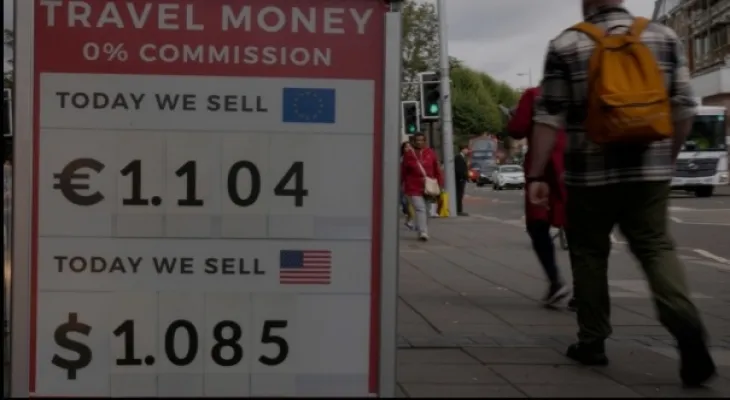Search here
Newspaper
Search here

Arab Canada News
News

Published: September 26, 2022
The British pound fell to its lowest ever level against the US dollar early on Monday after Minister Kwasi Kwarteng pledged a comprehensive package of tax cuts, raising concerns about the government's economic policy as the UK teeters on the brink of recession. The pound dropped to a low of 1.0373 US dollars, its lowest level since decimalization in 1971, before rising above 1.08 dollars in London trading in the afternoon.
The weak currency is also putting pressure on the new UK Conservative government, which is betting that tax cuts – offset by increased borrowing – will stimulate economic growth. Many economists also say it is likely to fuel already high inflation, push the pound down, and raise borrowing costs for the UK government – a potential perfect storm of economic headwinds. Prime Minister's spokesman Max Blain said, "We will not comment on daily market moves, this is a medium to long term plan."
In this context, the British currency has lost more than 5% of its value against the dollar since Friday, when Kwarteng announced the biggest tax cuts in the UK in 50 years, where the government plans to cut taxes by 45 billion pounds ($49 billion) in addition to spending billions to help consumers and businesses struggling with high energy bills that are leading to a cost of living crisis, and this mix has raised investors’ concerns about escalating government debt. Kwarteng and Prime Minister Liz Truss, who took office three weeks ago, are betting that tax cuts and deregulation will eventually generate enough additional tax revenue to cover government spending where economists indicate it is unlikely the gamble will pay off. The opposition Labour Party’s economic spokesperson Rachel Reeves accused the government of "returning to stop-start economics, an idea that has been tried, tested and failed,” and said to an audience at the party’s annual conference on Monday, "They are not gambling with their money – they are gambling with yours."
The new Truss, who has yet to be tested and replaced Boris Johnson as Prime Minister on September 6, faces pressure from a nervous Conservative Party. Some Conservatives have welcomed the tax cut measures as a return to free market values after years of state intervention in the economy during the coronavirus pandemic, but others fear it is un-conservative for the government to take on huge debts that taxpayers will eventually have to pay off. Kwarteng insisted the government was acting responsibly – and said there were more tax cuts to come, telling the BBC: "We've only been here 19 days. I want to see, over the next year, people keeping more of their income because I think it is the British people who will drive this economy."
While cutting taxes, the government plans to cap electricity and natural gas prices for homes and businesses to help ease the price increases caused by the Russian war in Ukraine and push inflation to a 40-year high of 9.9%.
Comments